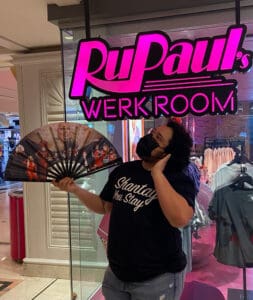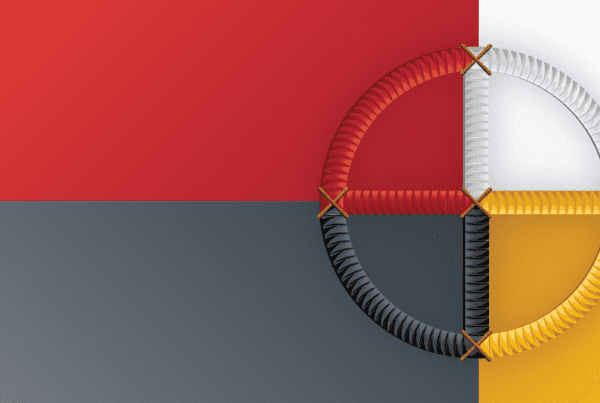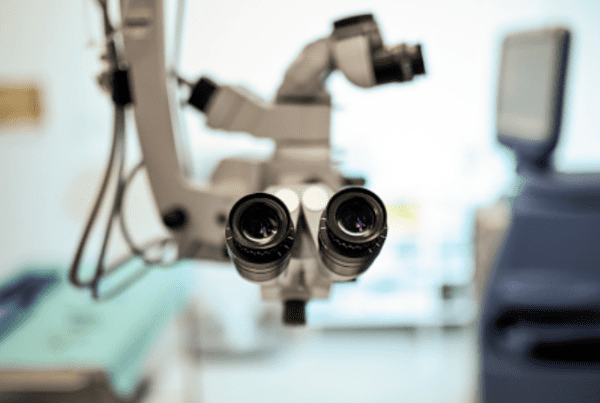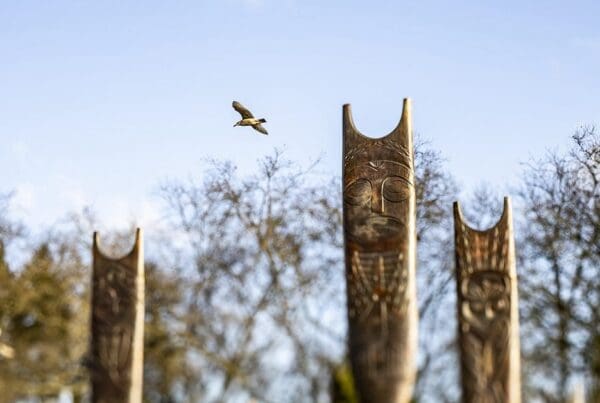“I define Pride as a protest — a celebration and a call to action.”
Hanna Hupp, associate director for Digital Communications, UW Medicine Advancement.
Understanding the history of Pride is an important context for appreciating LGBTQ+ experiences, from the first Stonewall uprising decades ago to its impacts and influence on LGBTQ+ people today.
We spoke with some of our LGBTQ+ colleagues at UW Medicine to get their perspectives on what they want people to know about the LGBTQ+ community, how they define Pride, how allies can best support them and more.
Nova Rivera, (He/They), MSW, MPH, LICSW, Program Manager, UW Medicine Long COVID Clinic

Nova Rivera, MSW, MPH, LICSW
As a queer/trans person of color, I have witnessed and experienced exclusion, so I’m mindful of that in my work at UW Medicine. I don’t think anyone gets hurt when we are more inclusive, but I can’t say the same about the inverse.
What I love about the LGBTQ+ community is the vibrant culture: We have our own music, movies and literature. We have historical figures, cultural icons and heroes. We even have our own accents, dialects and lexicon. Creativity is a cornerstone of our community, born out of necessity due to “mainstream” society historically excluding us. Our creative culture has been born both out of the need to express repressed individuality and to create a safe space.
We can all be more aware of how the experiences of LGBTQ+ patients and colleagues shape how they move through the world. According to the 2022 US Trans Survey, 48% of trans people who saw a provider in the past 12 months reported having at least one negative experience because they were trans, including being refused healthcare, being misgendered, and / or physically abused. Our UW Medicine colleagues are also patients somewhere and may face these same issues. This isn’t just a problem of yesterday; it’s a problem of today.
Austin Johnson, MD, (He/Him), Clinical Fellow, Division of Reproductive Endocrinology & Infertility, Department of Obstetrics & Gynecology

Austin Johnson, MD
My personal connection to the LGBTQ+ community fuels my drive to advocate for equitable access to fertility treatments and family building options. I want to remove barriers to help LGBTQ+ people achieve their family building goals.
I love the community’s celebration and support of one another. This support has withstood attempts throughout history to suppress people from celebrating who they are. I’m inspired by members of the community and their ability to overcome adversity and obstacles, whether discrimination, hate, or, unfortunately, violence. The LGBTQ+ community responds with love, determination and support for one another.
As we see increasing anti-LGBTQ+ legislation introduced across the nation (over 500 bills in 2023), I urge members of the UW Medicine community to participate in all local and federal elections. The effects of such legislation are far reaching, placing LGBTQ+ people at risk from receiving the care they need (such as gender-affirming treatments), limiting access to mental health resources, banning discussions of sexual orientation and gender identity, and threatening the ability of LGBTQ+ persons from marrying and / or building a family with the person they love.
Nga Dinh, (She/Her), Clinic Manager, UW Medicine Primary & Urgent Care at Ravenna

Nga Dinh
Being a member of the LGBTQ+ community influences and inspires my work at UW Medicine. My personal experiences have given me empathy and understanding of the diverse needs of our patients. I have seen firsthand how assumptions and discrimination in healthcare can affect individuals.
Every day, I strive to ensure that all patients feel seen, respected and understood. Witnessing greater acceptance and tailored healthcare practices gives me hope. It also highlights the significant amount of work still to be done. My goal is to help build a system where every patient, regardless of their sexual orientation or gender identity, receives the compassionate and competent care they deserve.
What I wish more people knew about the LGBTQ+ community is that it is diverse. Everyone has unique experiences and identities that intersect with race, gender, age and socio-economic status. This diversity means that the challenges and triumphs of LGBTQ+ individuals can vary widely. Within the community, we use our varied experiences to support each other in different ways. However, greater awareness and understanding of these diverse experiences from those outside the community would help bridge gaps in increased knowledge and empathy.
James Churgai, (He/Him), BSN, RN, CCRN, Program Operations Manager for Regulatory Affairs, Harborview Medical Center

James Churgai, BSN, RN, CCRN
In my current role, I advocate for policies and practices that ensure equal treatment and non-discrimination for LGBTQ+ patients and staff. My personal experiences drive my motivation and commitment to improving healthcare for all. I’m passionate about the Harborview Medical Center mission.
What inspires me most about our LGBTQ+ community is our spirit of unity and support. Our community creates a welcoming and inclusive environment, allowing individuals to be their authentic selves. My involvement in Seattle’s LGBTQ+ non-profit softball community has been particularly enlightening. It’s allowed me to travel the country, meet and compete with other LGBTQ+ individuals and witness the power of sports fostering unity. The stories of perseverance and triumph I’ve heard firsthand reinforce the strength and resilience of our community.
UW Medicine is a beacon of leadership in supporting LGBTQ+ employees and patients, setting a standard that other healthcare organizations can aspire to. By continuing to champion inclusivity across the organization, from policies and benefits to patient care practices, we can deepen our understanding of the diversity of LGBTQ+ individuals. Increasing visibility through leadership representation and community engagement with local LGBTQ+ organizations will further demonstrate UW Medicine’s commitment.
Hanna Hupp, (She/Her), Associate Director for Digital Communications, UW Medicine Advancement

Hanna Hupp
Every day, I’m aware of the gap between the care our community deserves and the care we often receive. I have seen multiple loved ones’ lives transformed by gender-affirming care — and I also know that, all too often, LGBTQ+ people aren’t able to access care that is thoughtful, inclusive or accessible. Through my work at UW Medicine, I hope I can help increase access to this critically important care.
Pride is an opportunity to honor the generations of queer people who fought for a world in which I can live joyfully and authentically. As a white person who experiences many forms of privilege, it’s also a reminder that the fight for justice, especially for those who are most marginalized within our community, is never over. Besides the silliness, campiness and sheer joy, the thing I love most about the LGBTQ+ community is the capacity to love, dream, hope and advocate fiercely in the face of bigotry and oppression.
UW Medicine can support LGBTQ+ employees and patients by continuing to build gender-affirming care expertise, prioritizing uncompensated care and celebrating us in bringing our whole selves to work.
Shanna Mitchell, (She/Her/They/Them), Patient Account Lead Specialty Accounts, Patient Accounts and Support Services

Shanna Mitchell
As a non-binary person of the LGBQT+ community, working at UW Medicine provides me with an opportunity to represent a community that is underserved, I am a supportive team member, a patient and a patient advocate. I know the stigma and challenges that some experience in the healthcare system; especially in our Trans community. My goal is to help a patient navigate through the billing system to provide a seamless experience, whether that be for HIV treatment or prevention, or gender-affirming surgery or basic healthcare. I’m passionate about helping this community know that the healthcare system is here for them and not against them.
What I love most about the LGBTQ + community is the sense of belonging. Many people are ostracized for who they are, but within this community I have found a place where I am accepted just as I am and I’d like to provide a safe place for everyone in healthcare. Because it can save a person’s life and increase their quality of life.
Brad Rolf, MS, CGC, (He/Him), Associate Program Director, Genetic Counseling Graduate Program, Department of Medicine

Brad Rolf, MS, CGC
Representation is important. There were not many gay role models for me growing up. I hope that by being open about my identity others will see how they would also be welcomed and included at UW Medicine.
Even though we all have different experiences, I often feel an instant connection with other queer people. No matter our individual backgrounds, there is much that we share, and I usually find common ground through shared experiences and a desire for acceptance and belonging.
I wish more people were aware of the precarious position of the LGBTQ+ community in society. Our rights, and in some cases, our very existence are frequently the discussion of social movements and political campaigns. Our hard-earned freedoms continue to be the subject of debate in society, and we live in a reality in which our rights could change or disappear. There has been so much legislation passed in the last few years that codifies hatred and discrimination – especially toward trans people. In the past several decades, we have come a long way, but there is still much work that needs to be done before we create a truly welcoming and inclusive society for queer people.
Editor’s note: Responses were lightly edited for length, clarity and style. Any information or opinions shared in this article are personal views, and do not represent those of the University of Washington or UW Medicine in any way, shape, or form.



